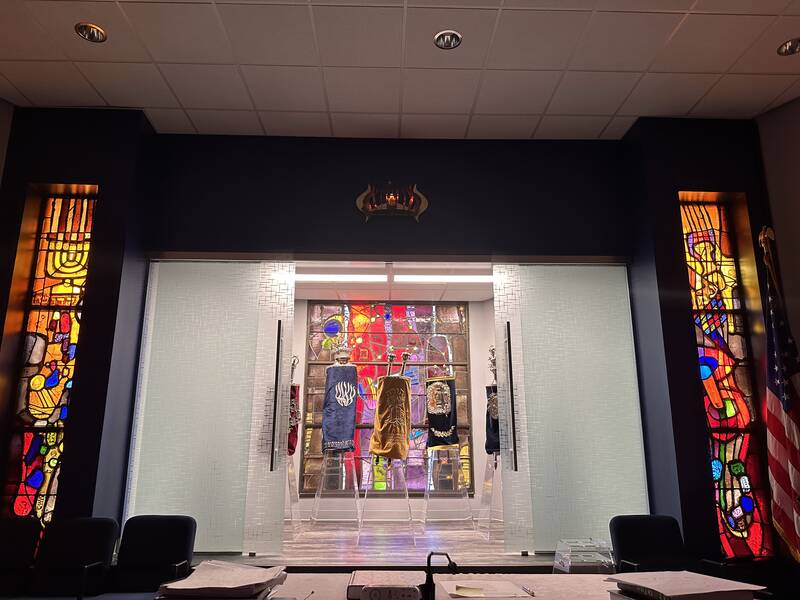Reform Judaism
 Throughout history, Jews have remained firmly rooted in Jewish tradition, even as we learned much from our encounters with other cultures. Nevertheless, since its earliest days, Reform Judaism has asserted that a Judaism frozen in time is an heirloom, not a living fountain. The great contribution of Reform Judaism is that it has enabled the Jewish people to introduce innovation while preserving tradition, to embrace diversity while asserting commonality, to affirm beliefs without rejecting those who doubt and to bring faith to sacred texts without sacrificing critical scholarship.
Throughout history, Jews have remained firmly rooted in Jewish tradition, even as we learned much from our encounters with other cultures. Nevertheless, since its earliest days, Reform Judaism has asserted that a Judaism frozen in time is an heirloom, not a living fountain. The great contribution of Reform Judaism is that it has enabled the Jewish people to introduce innovation while preserving tradition, to embrace diversity while asserting commonality, to affirm beliefs without rejecting those who doubt and to bring faith to sacred texts without sacrificing critical scholarship.
Reform Judaism affirms the central tenets of Judaism – God, Torah and Israel – even as it acknowledges the diversity of Reform Jewish beliefs and practices. We believe that all human beings are created in the image of God and that we are God’s partners in improving the world. Tikkun olam — repairing the world — is a hallmark of Reform Judaism as we strive to bring peace, freedom and justice to all people.
Reform Jews accept the Torah as the foundation of Jewish life containing God’s ongoing revelation to our people and the record of our people’s ongoing relationship with God. We see the Torah as God inspired, a living document that enables us to confront the timeless and timely challenges of our everyday lives.
In addition to our belief that Judaism must change and adapt to the needs of the day to survive and our firm commitment to tikkun olam, the following principles distinguish Reform Jews from other streams of Judaism in North America.
Reform Jews are committed to the principle of inclusion, not exclusion. Since 1978 the Reform Movement has been reaching out to Jews-by-choice and interfaith families, encouraging them to embrace Judaism. Reform Jews consider children to be Jewish if they are the child of a Jewish father or mother, so long as the child is raised as a Jew.
Reform Jews are committed to the absolute equality of women in all areas of Jewish life. We were the first movement to ordain women rabbis, invest women cantors and elect women presidents of our synagogues.
Reform Jews are also committed to the full participation of gays and lesbians in synagogue life as well as society-at-large.
Prayer and Worship
With two active clergy members, we offer a dynamic blend of worship opportunities that rely heavily on music and congregational participation.
Now, as always, Congregation Or Ami is your home.


Photo credit: Hy Paul Photography
T’filah at Congregation Or Ami
 The sanctuary is a place where our congregation comes together to connect with the holiness in ourselves, in others, and in the world. The holy space we create deserves respect and we honor it by being fully present and participating to the best of our ability.
The sanctuary is a place where our congregation comes together to connect with the holiness in ourselves, in others, and in the world. The holy space we create deserves respect and we honor it by being fully present and participating to the best of our ability.
Our prayer community is strengthened when families gather in the sanctuary to pray, sing and participate together.
Inviting your children's friends to sit with you is encouraged.
Jewish prayer is a communal experience, not a performance by the service leaders. We encourage everyone to open their prayer books and participate in the service as best they can, or to use the time for quiet contemplation.
Talking or texting is distracting to those who are trying to pray. Cell phones and other electronics should be silenced.
Please do not eat food or drink beverages in the sanctuary, as this detracts from its sanctity.
Prayer books and other materials used in the sanctuary should never be put on the floor or misused. If one is dropped on the floor, Jewish custom is to pick it up, kiss it gently and return it to its rightful place.
Kippot (head coverings) and tallitot (prayer shawls) are optional, but if they are worn, they should be worn respectfully.
Entering or leaving the sanctuary while the ark is open or the congregation is standing is disrespectful. Please refrain from entering or leaving the sanctuary at these times.
Kippot and tallitot are available in the lobby.



